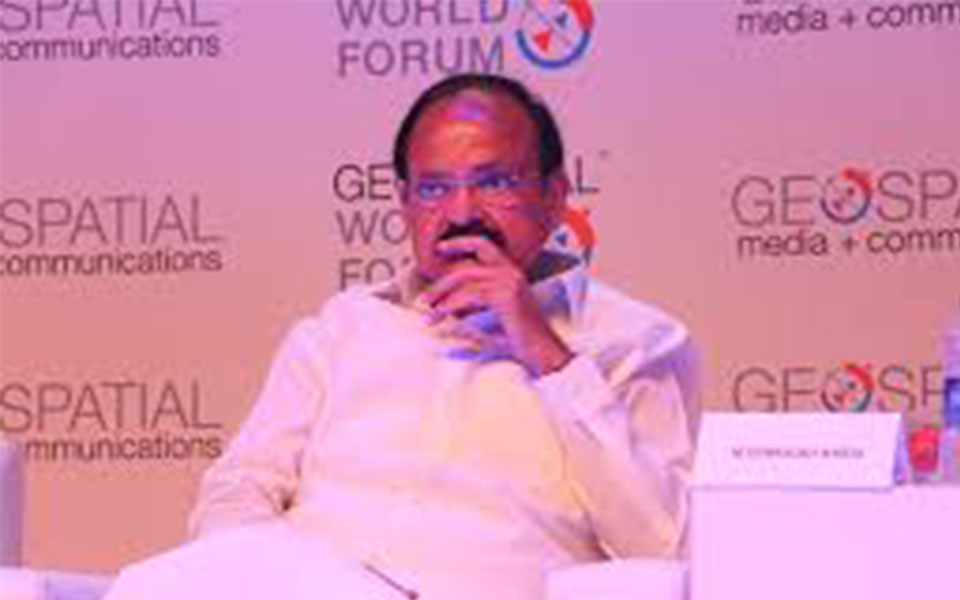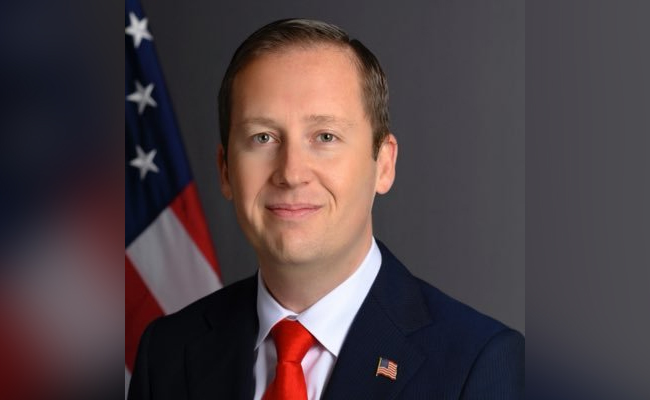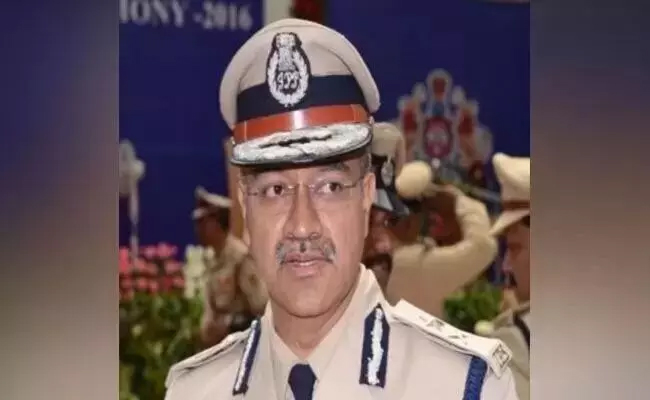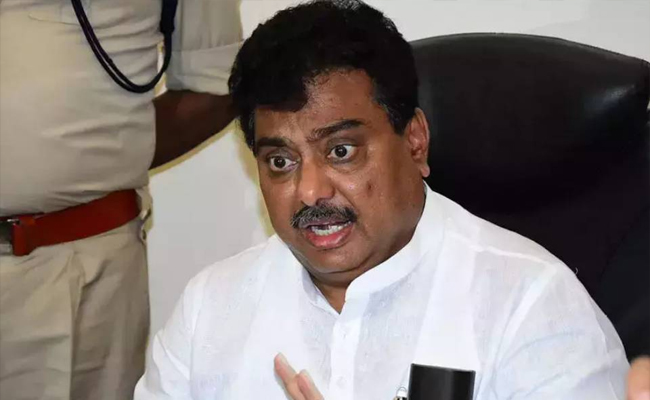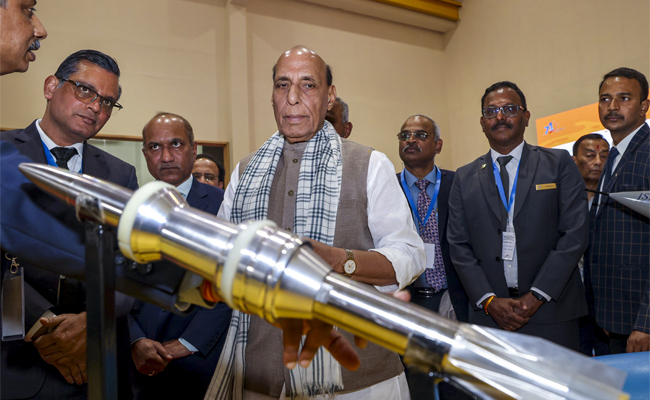Mumbai: Cancer screening after a certain age should be made mandatory in the country, Vice President Venkaiah Naidu said today, and asked researchers to make path-breaking advances in cancer prevention and treatment.
Addressing a graduation ceremony at the Tata Memorial Centre here, he also called for greater emphasis on inventing strategies in the battle against cancer.
"Two-thirds of advanced cancer cases are preventable.
Therefore, early detection and treatment are the need of the hour. The government should make it mandatory after a particular age for cancer screening. A healthy nation can become (a) wealthy nation," Naidu said.
"We should educate and spread awareness about early detection and prevention of cancer," he said.
Quoting the Indian Council of Medical Research data, Naidu said, "In 2016, the total number of new cancer cases was expected to be around 14.5 lakh and the figure is likely to reach nearly 17.3 lakh new cases in 2020. Over 7.36 lakh people were expected to succumb to the disease in 2016 while the figure is estimated to shoot up to 8.8 lakh by 2020."
The data also revealed that only 12.5 per cent of patients come for treatment at early stages of the disease, Naidu said, adding among women, breast cancer topped the list, while it was mouth cancer among men.
"According to the Global Adult Tobacco Survey, in India during 2016-17, around 19 per cent of men, 12.8 per cent of women and 21.4 per cent of all adults smoke tobacco and 42.4 per cent of men, 14.2 per cent of women and 28.6 per cent of all adults either smoke tobacco and or use smokeless tobacco," the vice president said.
Naidu underlined the importance of Ayurveda to the graduating students, saying, "Medical students should try to explore if ancient Indian medical systems like Ayurveda, can offer some alternative solutions on cancer treatment."
According to some scholars, cancer treatment with Ayurveda goes back to seventh century BC, where Atreya and Dhanwanthari used herbal medicines for treating early stages of cancer, he said.
"We should see if there are some indigenous cost- effective solutions that may be useful for making cancer treatment more affordable," Naidu said.
The vice president said, "People should go back to their roots, especially the way we live and the way we think."
Awareness must be created, particularly among the youngsters, on the need to lead healthy lifestyles and avoid consumption of junk food, he said.
Naidu also touched on the need to increase palliative care centres in the country.
He asked doctors and medical students to spread awareness on the need to observe personal hygiene and maintain sanitation.
Lack of personal hygiene causes infections like HPV, which, in turn, has the potential to cause cancer of the cervix, Naidu said.
Yoga training should be imparted to students as part of ensuring healthy lifestyles, he said, adding yoga is a holistic approach to healthy living and there is evidence that it enhances the well being and quality of life.
Let the Truth be known. If you read VB and like VB, please be a VB Supporter and Help us deliver the Truth to one and all.
New Delhi: A visit by the US Ambassador to India, Sergio Gor, to Chandigarh on Monday has triggered sharp criticism from opposition leaders and social media users, raising questions about national security and foreign policy.
On X, Ambassador Gor announced his visit, writing, “Just landed in Chandigarh. Looking forward to visiting the Western Command of the Indian Army.”
Just landed in Chandigarh. Looking forward to visiting the Western Command of the Indian Army
— Ambassador Sergio Gor (@USAmbIndia) February 16, 2026
Soon after, opposition voices questioned the broader implications of the visit. Congress Kerala, in a post, commented, “Why so much panic? We’ve already seen Pakistan's ISI getting access to Pathankot Airbase with this government's blessings. Didn't they say then ‘Modi ne kiya ho to kuch soch samajh kar kiya hoga?’ Compared to that, this is very small.”
Why so much panic? We’ve already seen Pakistan's ISI getting access to Pathankot Airbase with this government's blessings.
— Congress Kerala (@INCKerala) February 16, 2026
Didn't they say then "Modi ne kiya ho to kuch soch samajh kar kiya hoga?"
Compared to that, this is very small. pic.twitter.com/gNNuAGQBPC
Shiv Sena (UBT) leader Priyanka Chaturvedi also weighed in, writing, “Since India’s national strategic interests are now tied to what US wants India to do, this visit seems to sync with that.”
She further added, “India’s history will remember the de-escalation announcement between India and Pak was announced on social media by the US President before Indians got to know from their own government. US Ambassador is doing the job for his nation, who is doing for us? The answer is blowing in the wind.”
Since India’s national strategic interests are now tied to what US wants India to do, this visit seems to sync with that. India’s history will remember the de-escalation announcement between India and Pak was announced on social media by the US President before Indians got to… pic.twitter.com/rYMq5NhJHA
— Priyanka Chaturvedi🇮🇳 (@priyankac19) February 16, 2026
The visit comes against the backdrop of the growing US-India defence partnership.
Writer and political analyst @rajuparulekar commented on ‘X’, “East India Company is back!”
“Is it allowed for an ambassador to visit any army unit in india?” asked another user.
Several X users expressed concerns over the appropriateness of the visit.
One asked, “Is it allowed for an ambassador to visit any army unit in India?” Another wrote, “Why an ambassador visiting our army places? To talk to Chandigarh lobby for F-35?”
Why an ambassador visiting our army places ? To talk to chandigarh lobby for f-35 ??
— Rohan Sagar (@RohanSagar03) February 16, 2026
“We have completely sold Indian sovereignty. Rothschild the evil Bankers will now control NSE. Modi sold Bharat Mata to Trump . And now American imperialist is visiting our army command . Scary,” wrote another user.
“The Indian Army isn’t part of geopolitics, so why is he interested in visiting there?,” opined another.
The Indian Army isn’t part of geopolitics, so why is he interested in visiting there?
— Aditya Pratap Singh (@Adi_IIMCIAN) February 16, 2026
On Sunday, Gor welcomed Admiral Samuel Paparo, Commander of the United States Indo-Pacific Command (INDOPACOM), highlighting efforts to expand the growing US-India defence partnership.
In a post on X, Gor wrote, “Delighted to have @INDOPACOM Commander Admiral Samuel Paparo in India to expand the U.S.-India defense partnership. Now is the time to strengthen vital cooperation between our two nations.”
On Monday, Admiral Samuel J. Paparo Jr visited the headquarters of India’s Western Army Command along with the American envoy Sergio Gor. The delegation was briefed on the formation’s capabilities, its past operations, and future plans.
The American delegation also visited Bengaluru, where they met three start-ups, two in the space sector and one in defence, and participated in an Indo-US conference.

